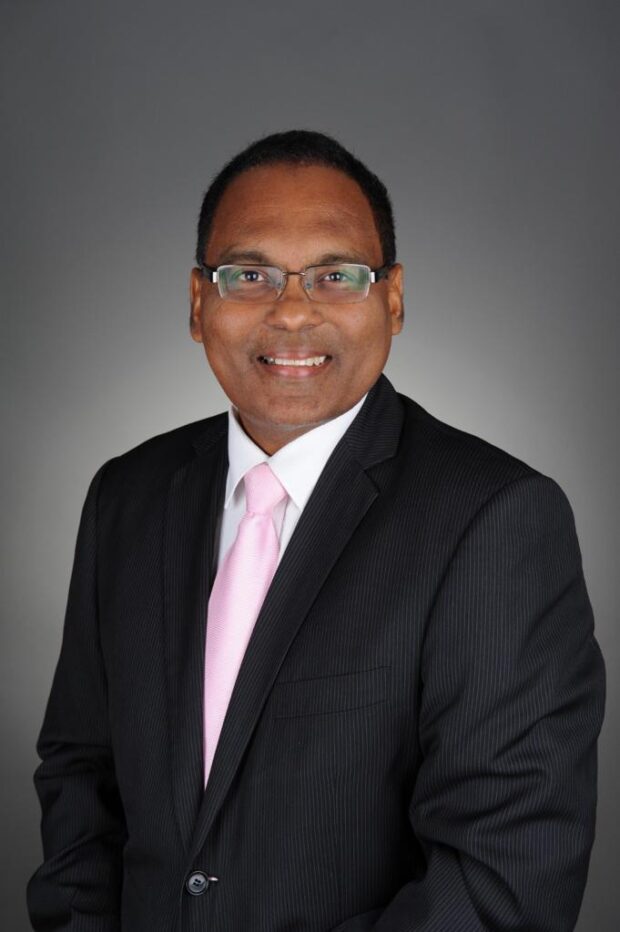
Global security specialist Professor Rohan Gunaratna of S. Rajaratnam School of International Studies in Singapore.
MANILA, Philippines — A global security threat specialist issued an alarm over reports that various armed groups in Mindanao, previously involved in the kidnap-for-ransom operations and other heinous crimes, are currently behind the proliferation of cigarette smuggling in the country.
“Cigarette smuggling became a profitable means of income-generating activity for most of the existing armed groups in Mindanao, particularly the Abu Sayyaf Group (ASG) and the Moro National Liberation Front (MNLF),” Prof. Rohan Gunaratna, of the S. Rajaratnam School of International Studies in Singapore, told participants in a recent two-day conference dubbed ”PROTECT 2023: Doing Business Amidst New Threats” at the New World Hotel in Makati City.
In fact, Gunaratna said, these armed groups-turned-smugglers have been “corrupting” a number of high-ranking officials of the police and the military assigned in Mindanao to facilitate and protect their illegal activities.
READ: BOC seizes P1.4 billion worth of smuggled cigarettes in Sulu warehouse
Worse, he said, some members of these armed groups became more powerful and influential because “they gained political positions” in their areas of operations.
The unlawful activities of the groups were eventually shut off after decades of reign due to the tremendous and relentless actions of the military, law enforcement agencies and intelligence communities, the global security threat expert said.
The professor, who is an international authority on global security threat, was among the issues during a leaders’ round table discussion on the second day of the forum , which tackled issues affecting national security; smuggling, counterfeiting, human trafficking, infiltration of business and government (fraud) and money laundering.
The session focused on Cross Border Crimes – “Criminals are Using Technology Against Us” and “Businesses are Being Targeted by Criminals and Terrorists.”
The PROTECT series of conference on “Doing Business Amidst New Threats” was launched in 2005, by Leverage International (Consultants) Inc. in partnership with the Anti-Terrorism Task Force Security and Safety (later to become the Anti-Terrorism Council). This was in response to increasing threats of terrorism following the 9/11 terrorist bombings of the World Trade Center in New York.
Among the ranking government officials who were part of the conference last September 28 and 29 were National Security Adviser Secretary Eduardo Año, Supreme Court Chief Justice Alexander Gesmundo, Health Secretary Teodoro Herbosa and former AFP Chief of Staff Gen. Benjamin Defensor. Leaders from the private sectors attended as well.
“The structure of the Abu Sayyaf, the structure of the BIFF (Bangsamoro Islamic Freedom Fighters) and that of the ISIS had already been dismantled. Their leaders had been neutralized, including the last foreign terrorist fighter in the South,” Gunaratna said.
He emphasized: “In the Philippines, the key shift is from terrorism to crime. Terrorism is no longer the real monster in the Philippines, crime is.”
He further disclosed that the funds from kidnap-for-ransom or support from financiers, these armed groups invested in cigarette and rice smuggling and purchased several speedboats to transport their illegal goods from neighboring nations, mostly from Indonesia.
“The ASG was founded in Basilan by Abdurajak Janjalani. During the leadership of then Kumander Robot and Mujiv Susukan, the ASG invested the ransom money derived from the infamous Sipadan Kidnapping in 2001 and got themselves involved in rice smuggling.”
Professor Gunaratna added that a team from the Basilan-based ASG headed by Bensali Andan alias Binang Andan started cigarette smuggling in Bongao, Tawi-Tawi and their operations had grown and increased by the millions that even “if they cannot find targets in their kidnapping activities, they never ran out of funds.”
In July 2021, police authorities in Zamboanga City arrested two ASG officials and seized from their rented house in Barangay Sta. Barangay numerous boxes of assorted brands of smuggled cigarettes worth millions of pesos and five high-powered firearms.
Another anti-terror expert Prof. Mohd Mizan Mohd Aslam of the University of Malaysia Perlis, in an article published in the New Straits Times on September 21, 2021, also pointed to the ASG as an armed group involved in the cross-border crimes, specifically cigarette smuggling.
Aslam explained that the ASG chose to smuggle cigarettes than firearms and drugs because smuggling of cigarettes has the “lowest risk” compared to other goods.
According to Professor Gunaratna, the MNLF, on the other hand, used its personnel and war equipment in smuggling cigarettes from Malaysia via Sabah, into southern parts of Mindanao including Tawi-Tawi, Basilan, Sulu and the Zamboanga Peninsula area.
He said the MNLF officials allegedly formed connections with local politicians, with some of them in political positions in the areas that protected their business interests.
Gunaratna underscored the importance of controlling cigarette smuggling since the Philippine government is losing billions of pesos a year in unpaid excise tax which should have been allocated to fund various pro-poor projects such as universal healthcare.
He suggested several approaches to address rampant illicit cigarette trade, smuggling and sale of smuggled cigarettes included, by thwarting corruption, strengthening border control monitoring, regional sharing of intelligence information, the harmonization of preventative regulation between the source, transit and destination countries, strengthen law enforcement operations against transnational crimes and effective implementation of the Anti-Terrorism law.
Gunaratna also cited the emergence of several private ports in many parts of the country, particularly in Mindanao, as another main tool in the successful transport of smuggled goods from the neighboring nations.
”Unless these private ports are monitored and put under the control of the government, smugglers will continue to engage in this illegal activity,” Gunaratna stressed.

